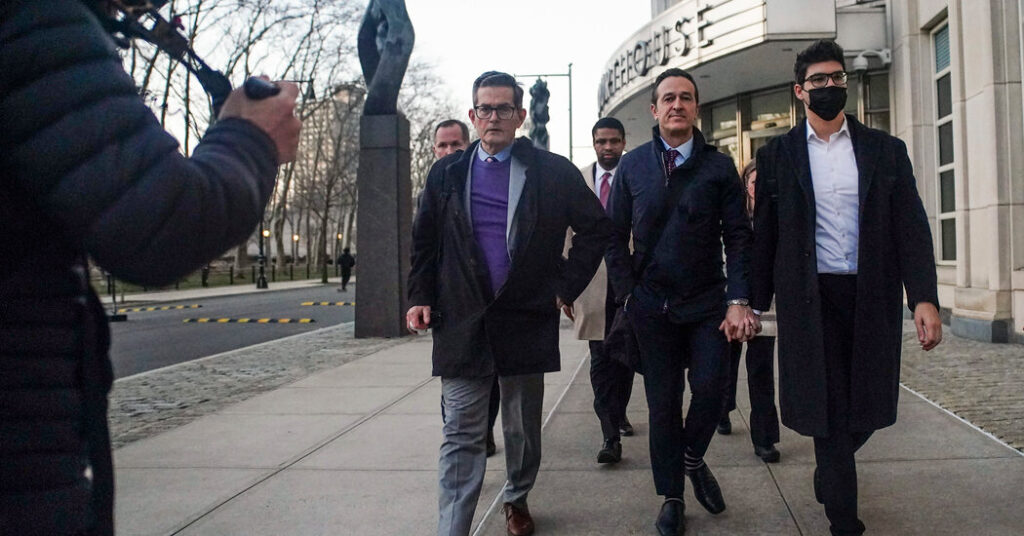And as in the first trial in the case, the government relied particularly heavily on a single star witness: Alejandro Burzaco, the former chief executive of the Argentine sports marketing and TV production firm Torneos, who pleaded guilty in the case in 2015 and has been cooperating with the U.S. government since.
Over 11 days of testimony, he described in painstaking and sometimes stultifying detail the esoteric series of shell companies and phony contracts that had been used to pay bribes to soccer officials through a joint venture owned by Torneos and 21st Century Fox. Although he personally arranged the payments, Burzaco said he had informed both López and Martínez about their existence and said that neither executive had done anything to halt them.
Burzaco also detailed using a relationship cultivated through bribes paid to Julio Grondona — a FIFA vice president and a longtime president of Argentina’s soccer association who died in 2014 — to gain inside information that helped Fox win the U.S. English-language rights to the 2018 and 2022 World Cups. ESPN had long held that coveted property.
Although bidding was supposed to have been blind, Burzaco said he had asked Grondona in late 2011 for help at López’s request. Burzaco testified that Grondona had “told me if Fox puts $400 million, they are going to award it to Fox — tell your friends.” Fox ultimately paid $425 million, and several years later obtained rights to the 2026 World Cup, to be held in the United States, Canada and Mexico.
Over howls of protest from defense lawyers, prosecutors called the former ESPN president John Skipper to testify about the incident. “I was disappointed,” he said. “In fact, I was angry.”
In a statement after the verdict, a Fox spokesman said, “This case does not involve Fox Corporation, and it was made clear that there was no connection to Fox’s successful World Cup bids.” The company has in the past noted that the unit where López and Martínez worked, Fox International Channels, was spun off in 2019 and that it was a different division, Fox Sports, that was charged with negotiating for those rights.
Although both López and Martínez maintained their innocence, claiming they were never aware any bribes had been paid, Full Play took a decidedly different tack. Its lawyers readily admitted that the company had made regular payments to Latin American soccer officials but claimed that those payments had not been bribes but simply the standard way of doing business when it came to South American soccer.
Ortiz, the lawyer for Full Play, said in his closing arguments late last week: “You can look at it and, say, hey, do I like this morally? Do I think this is appropriate?” But, he added, “all of these executives and officers acted in a manner and behaved and carried themselves in a manner that sent a clear, strong message that their receipts of payments were totally fine.”


